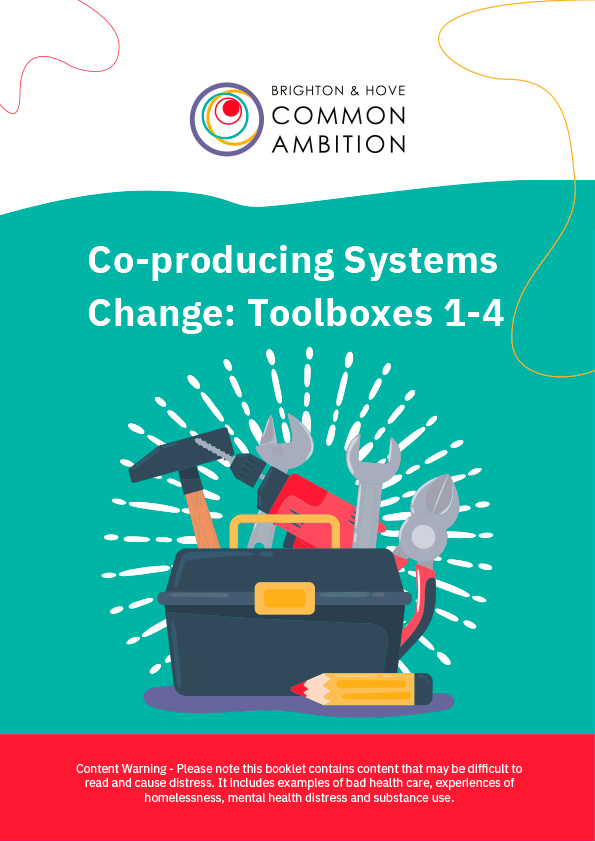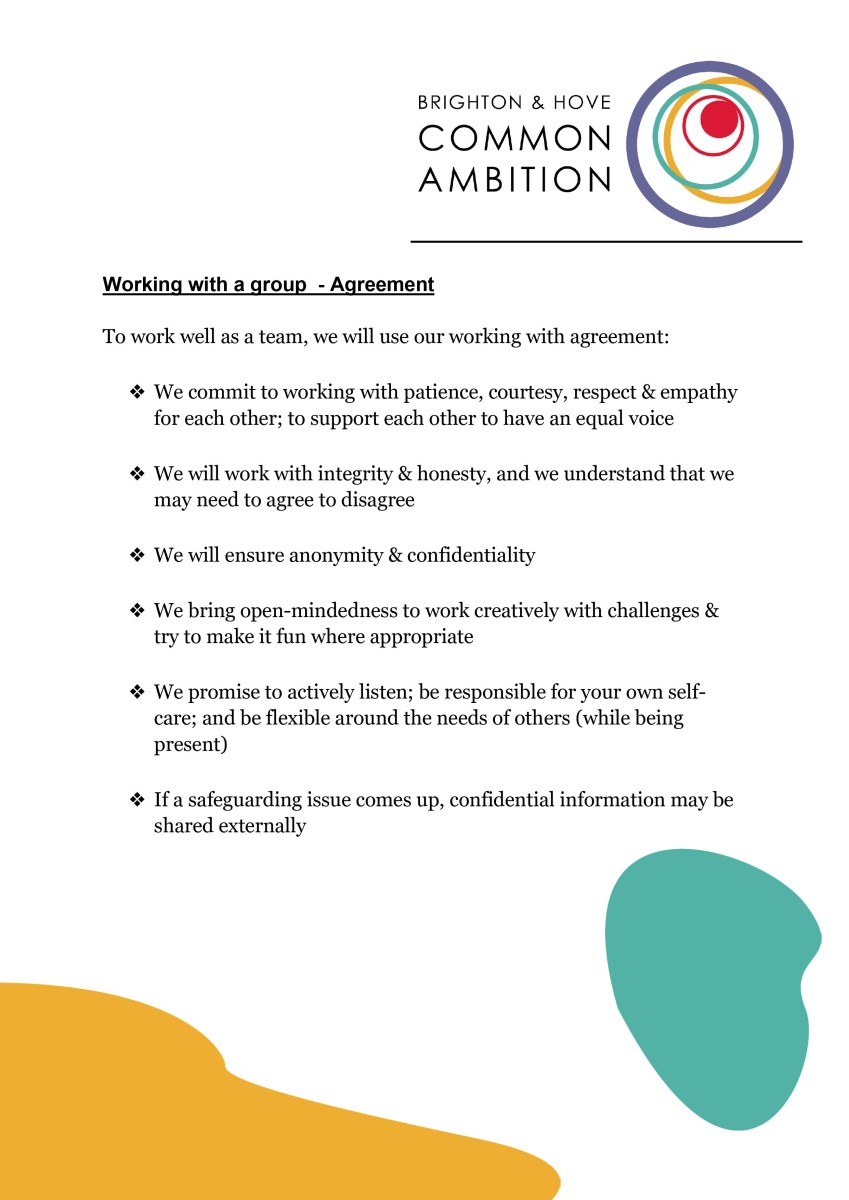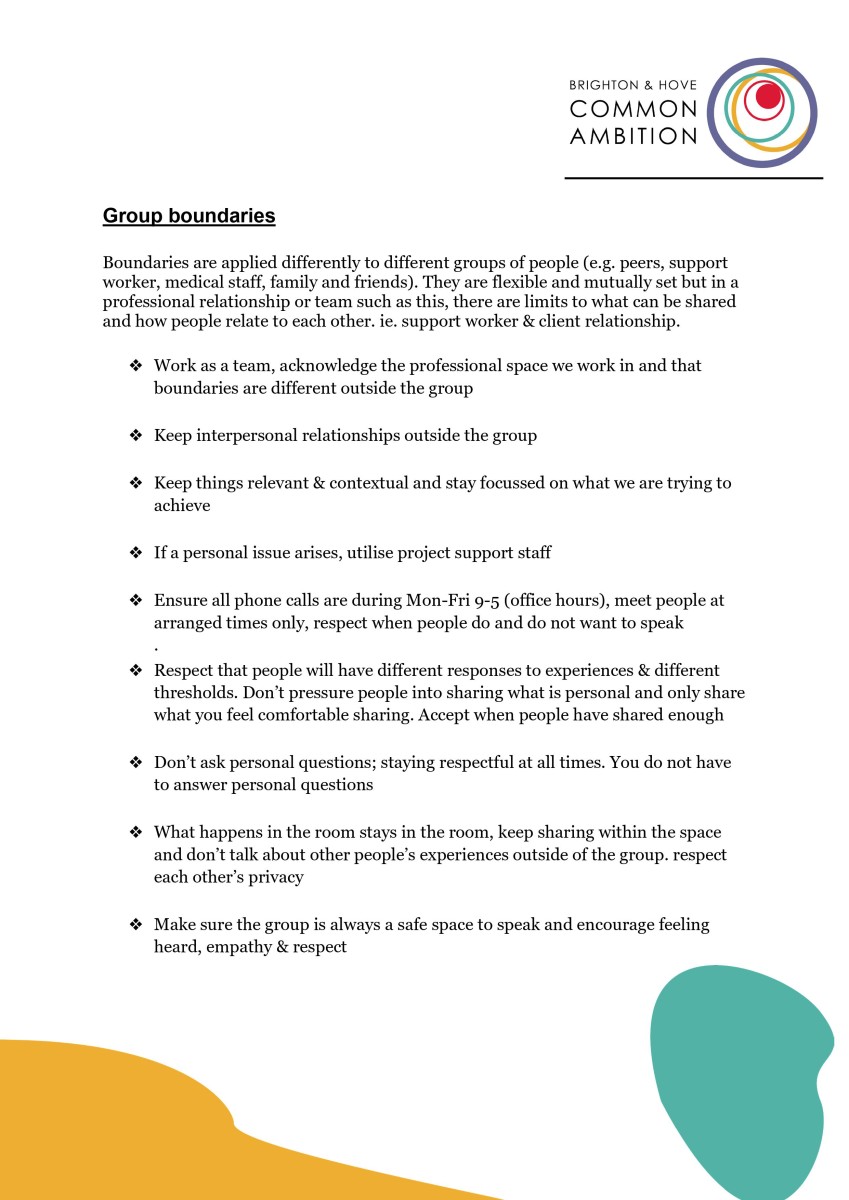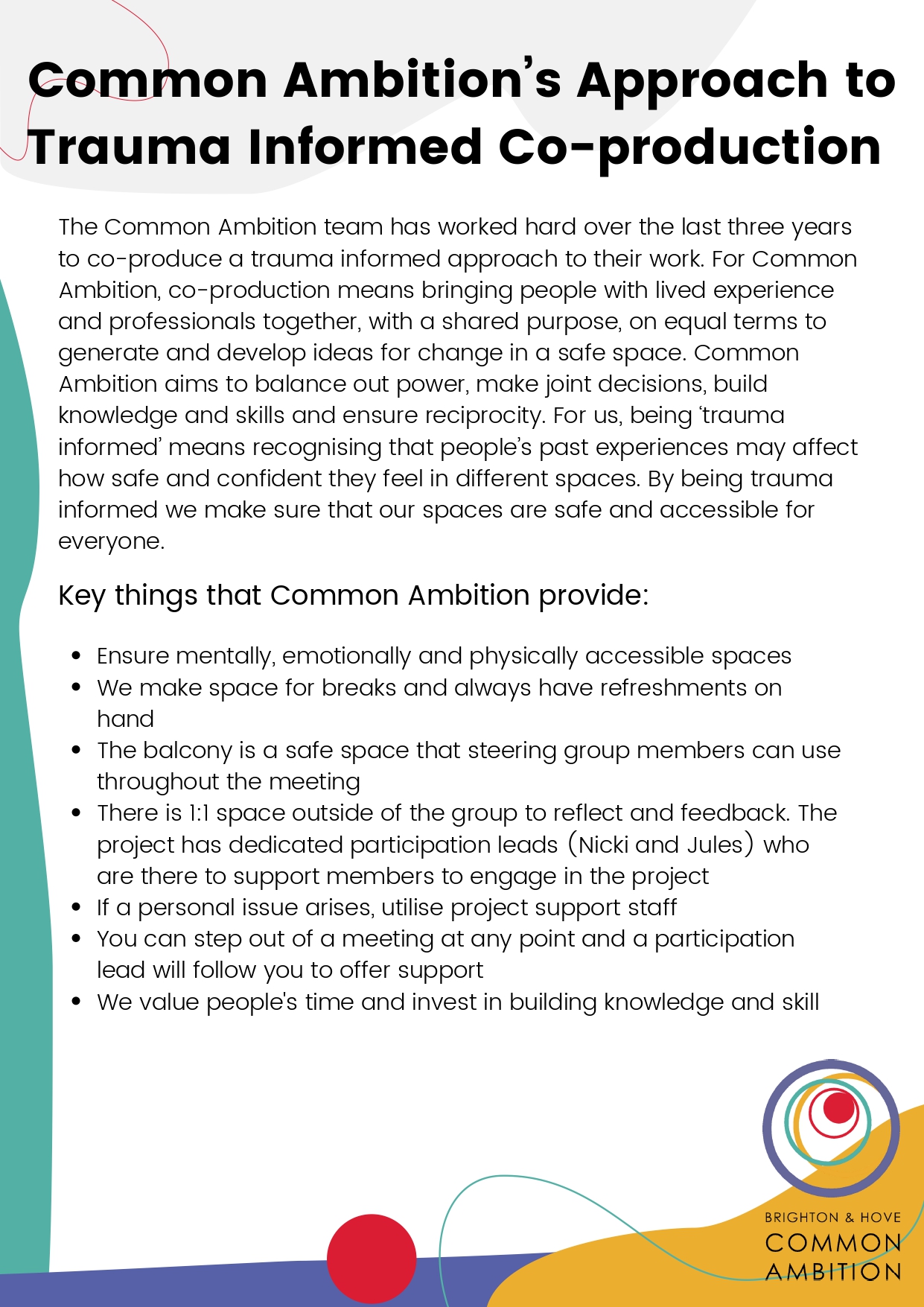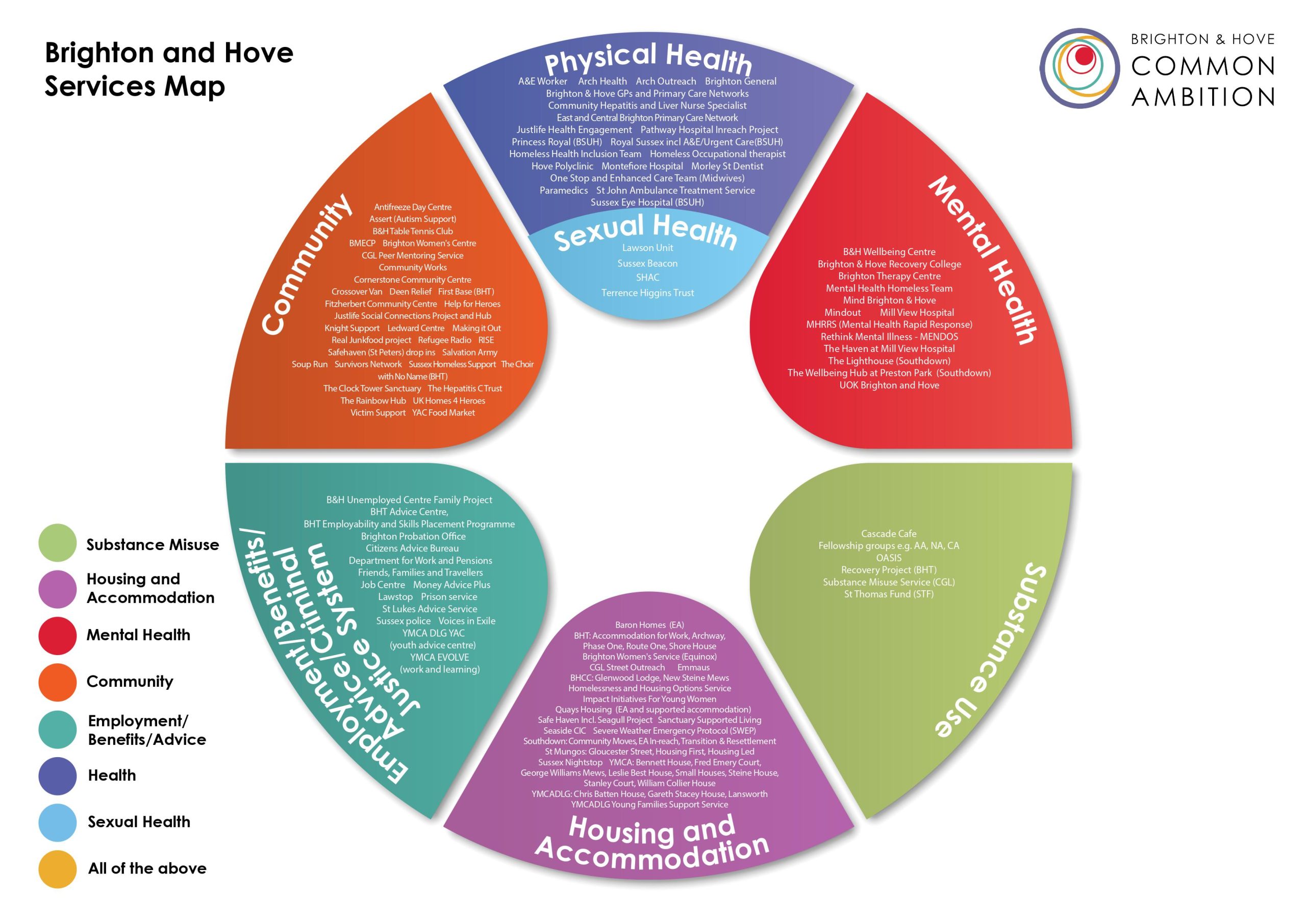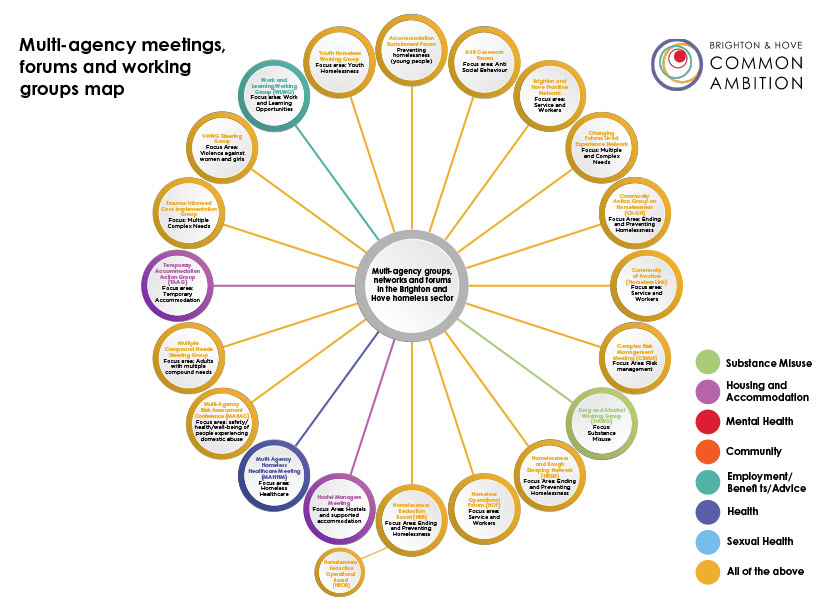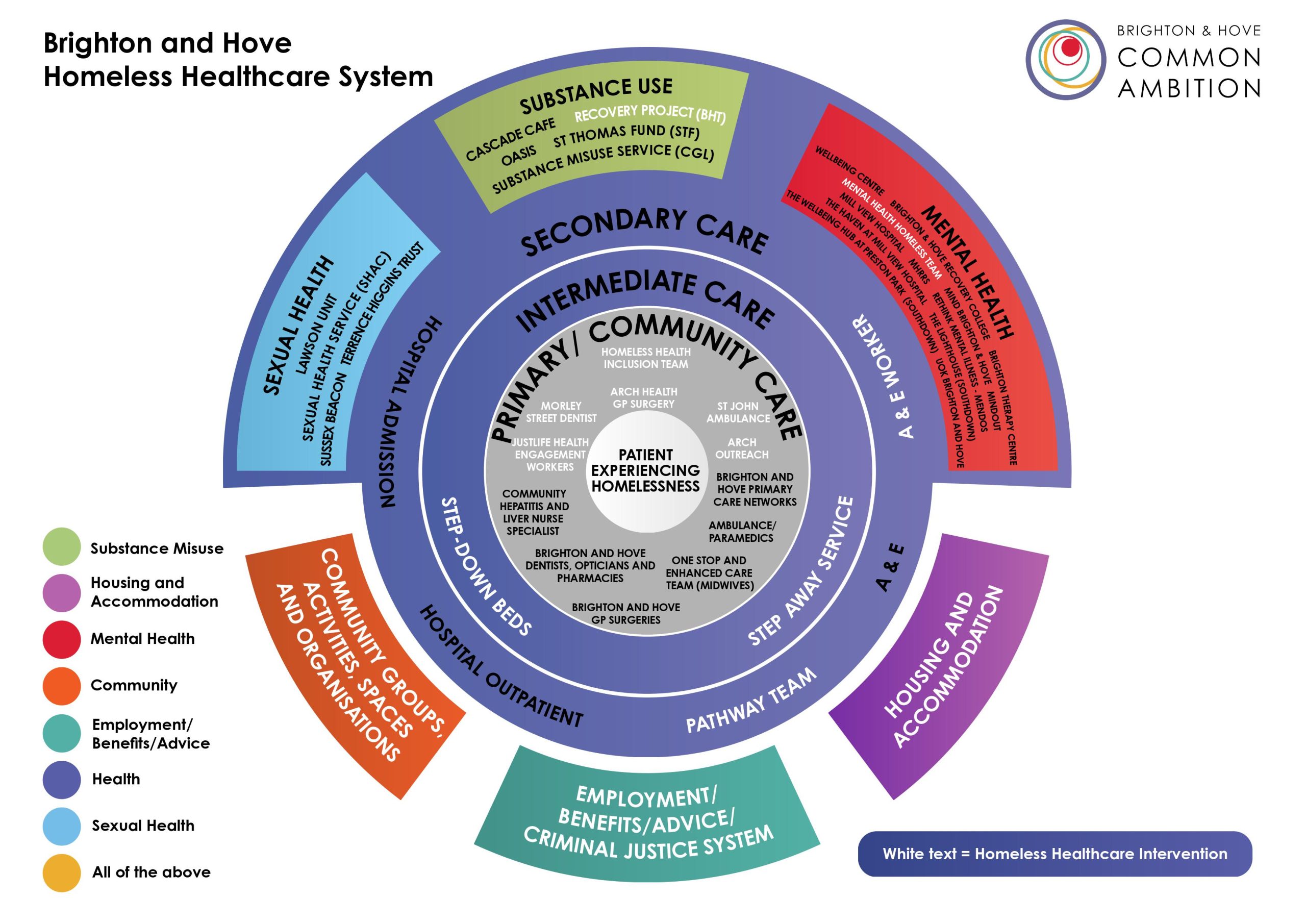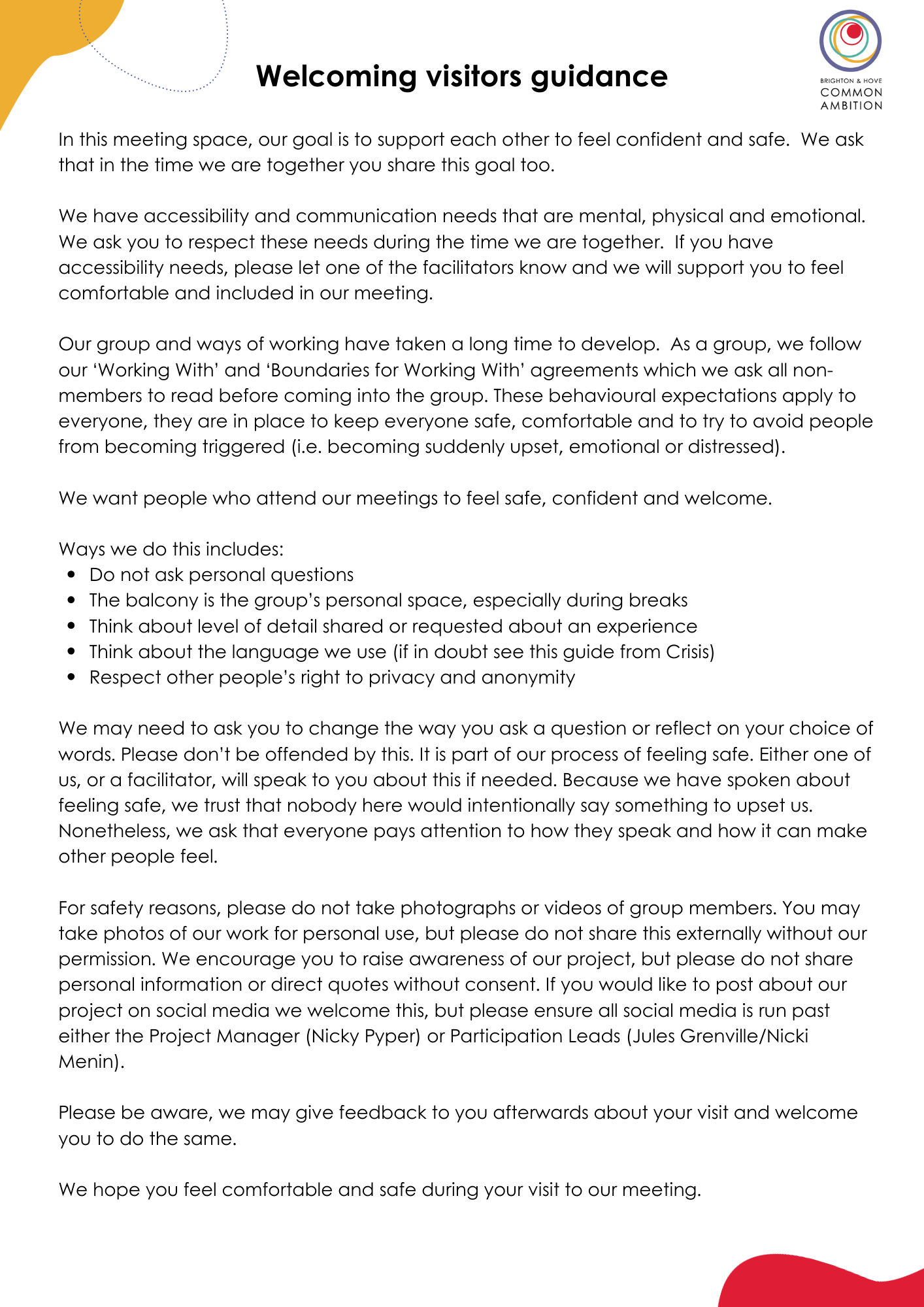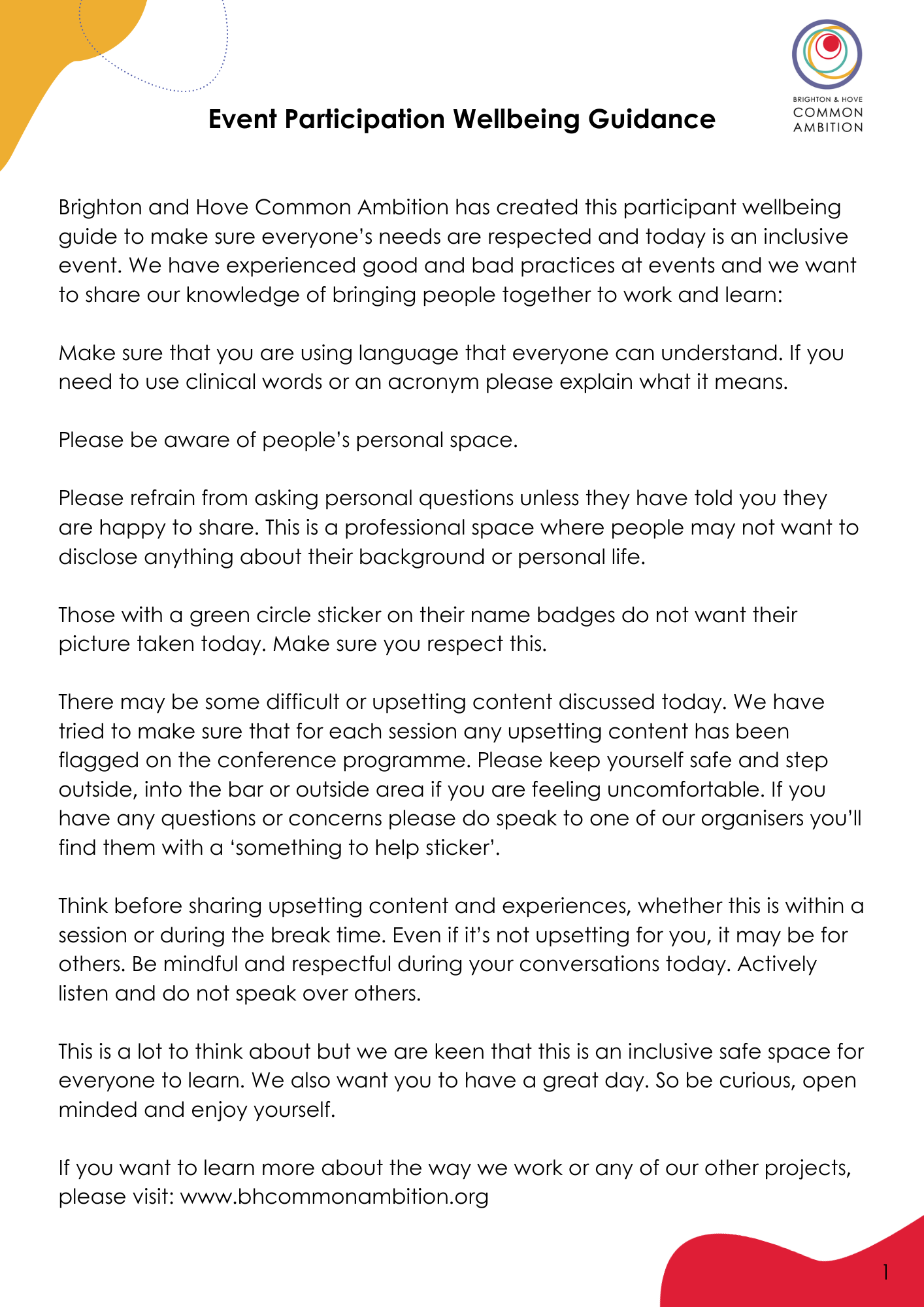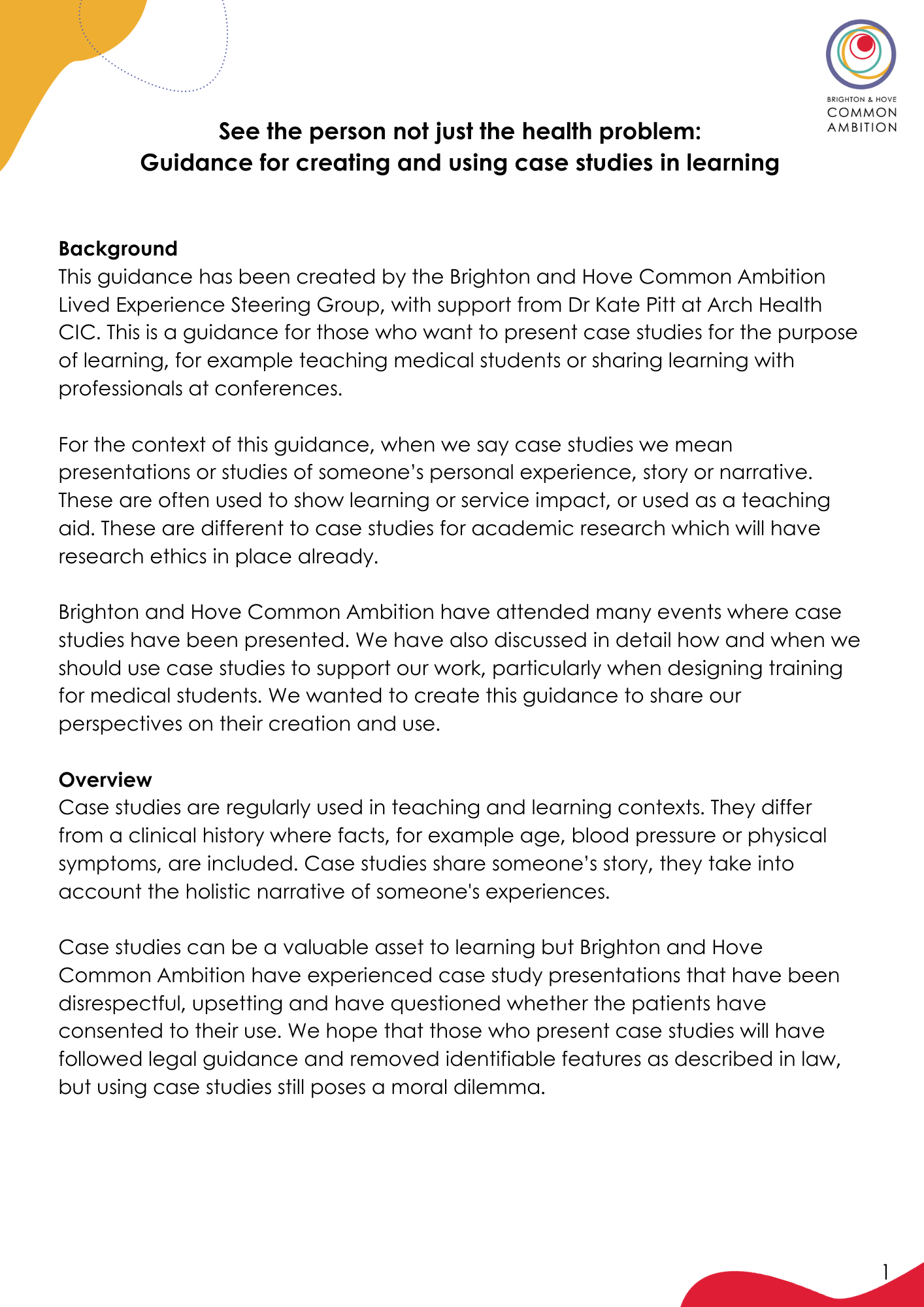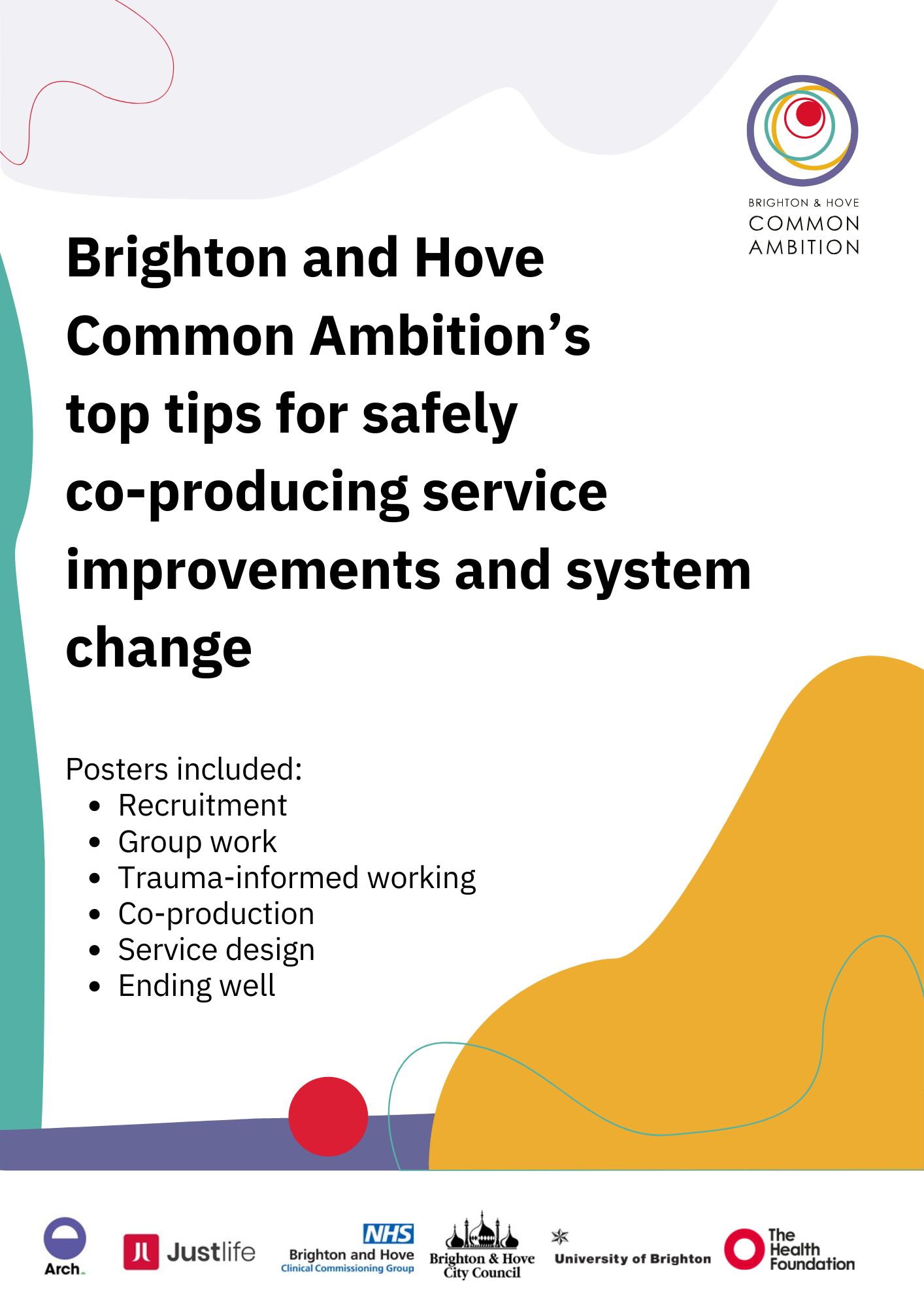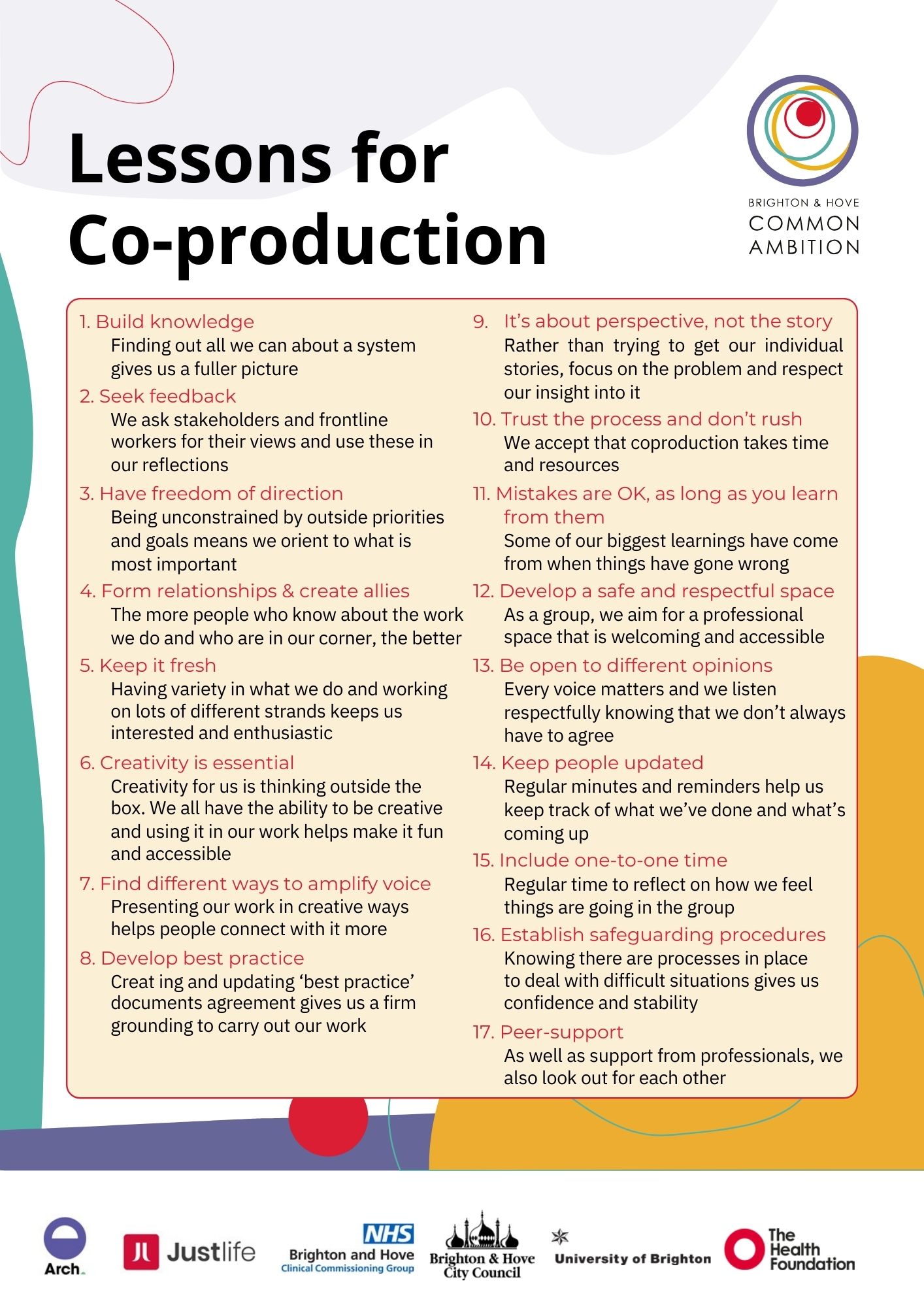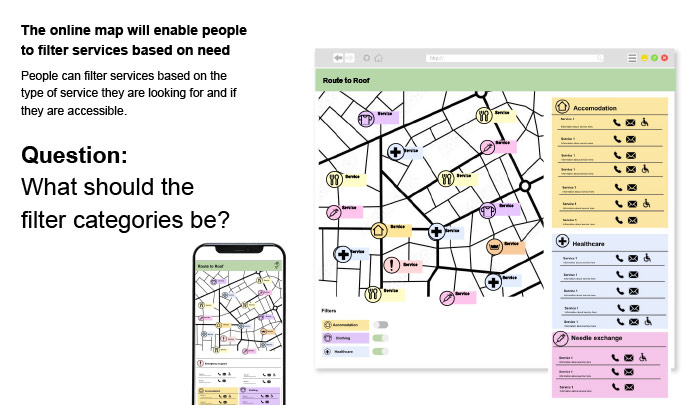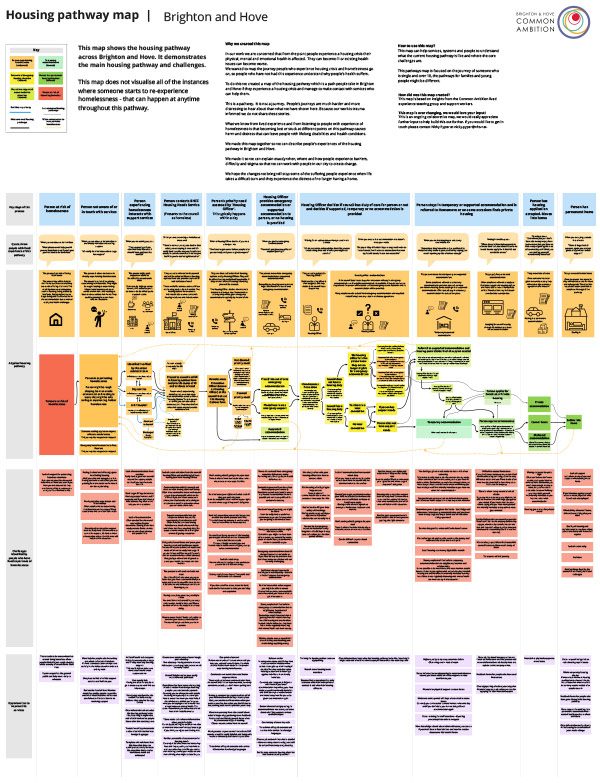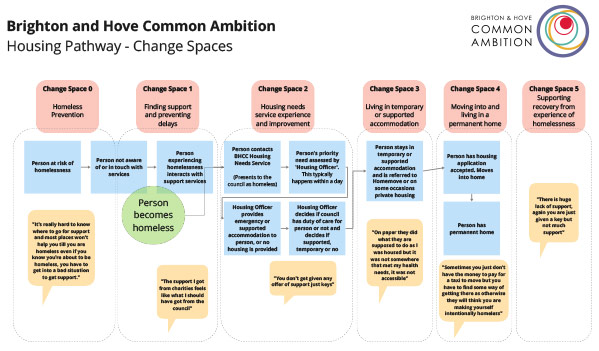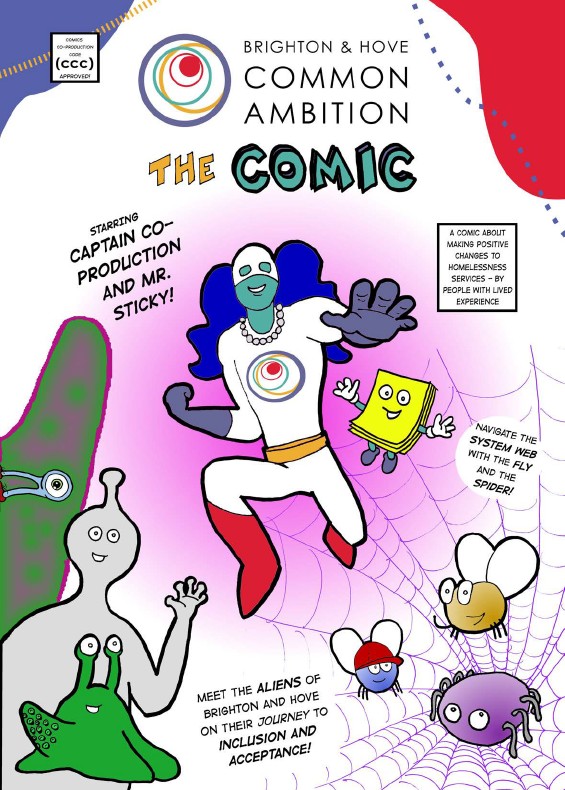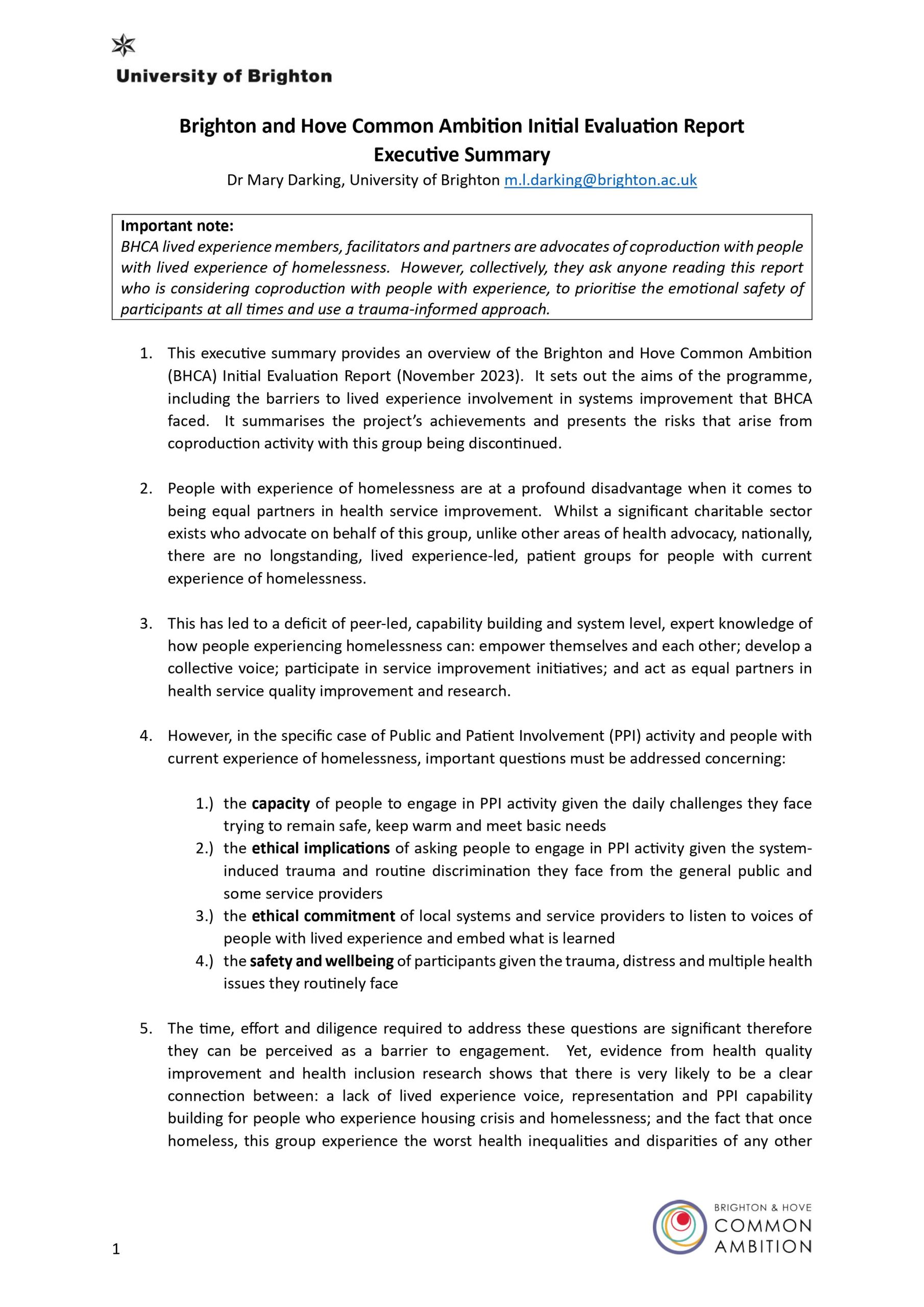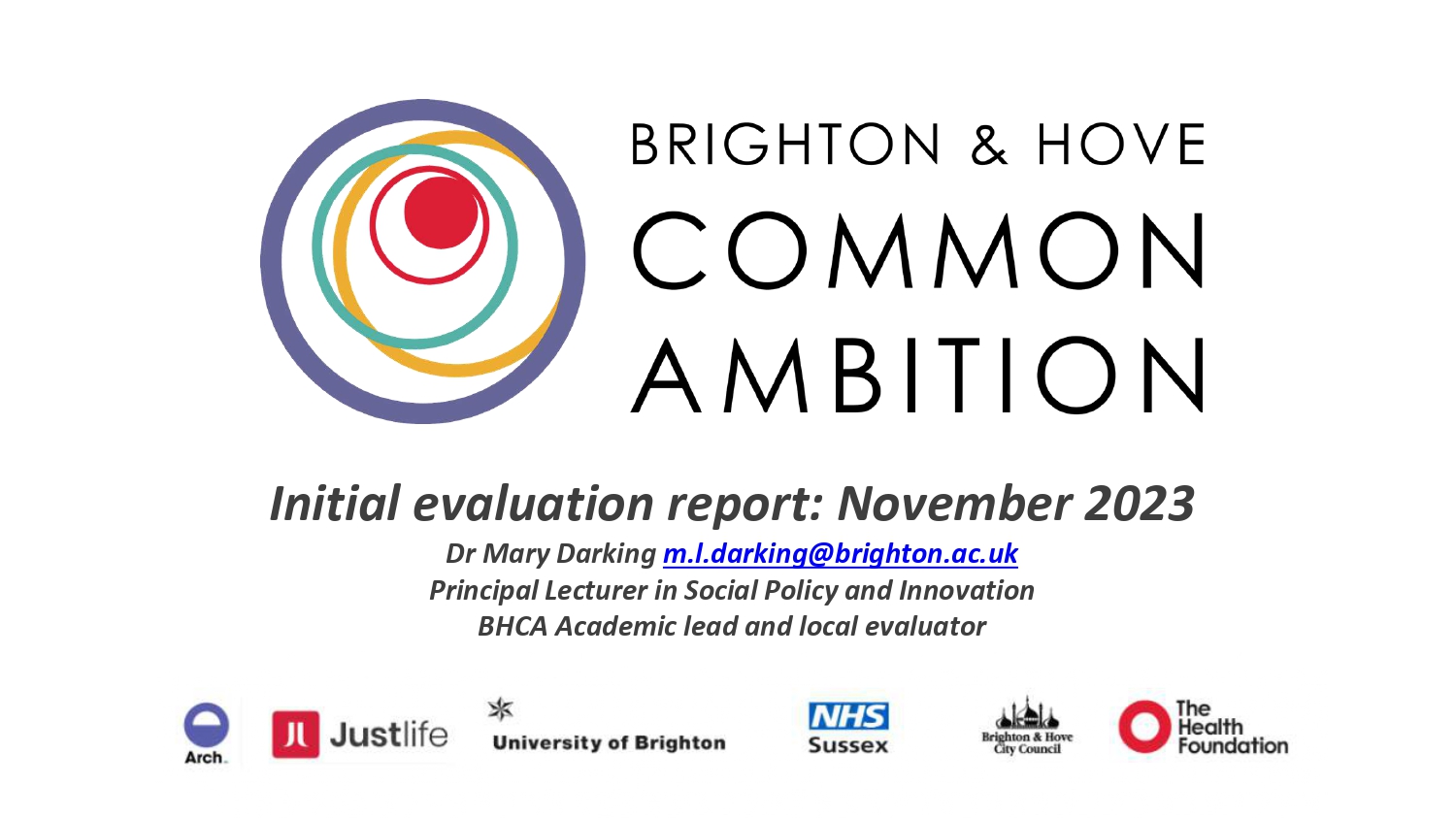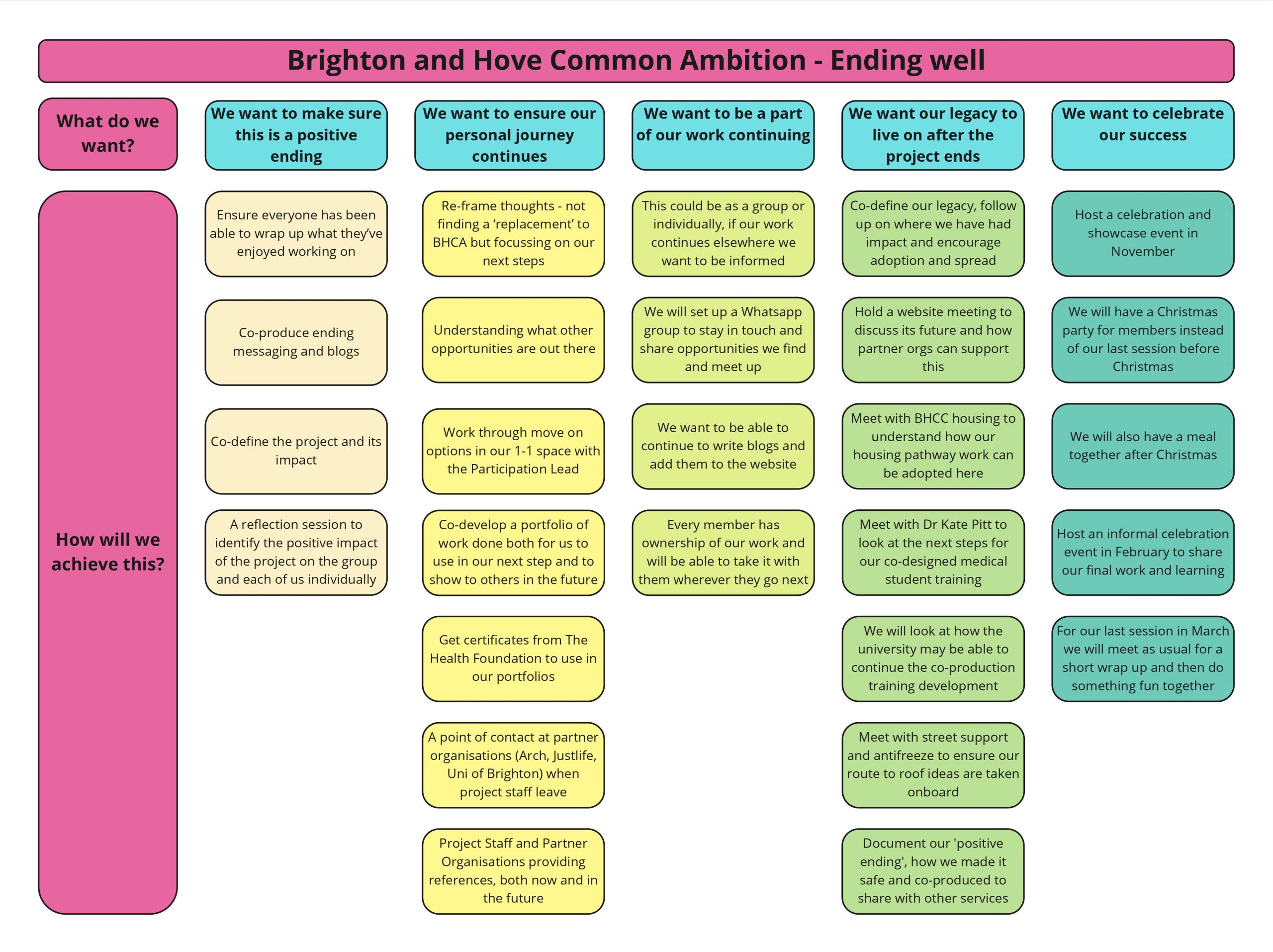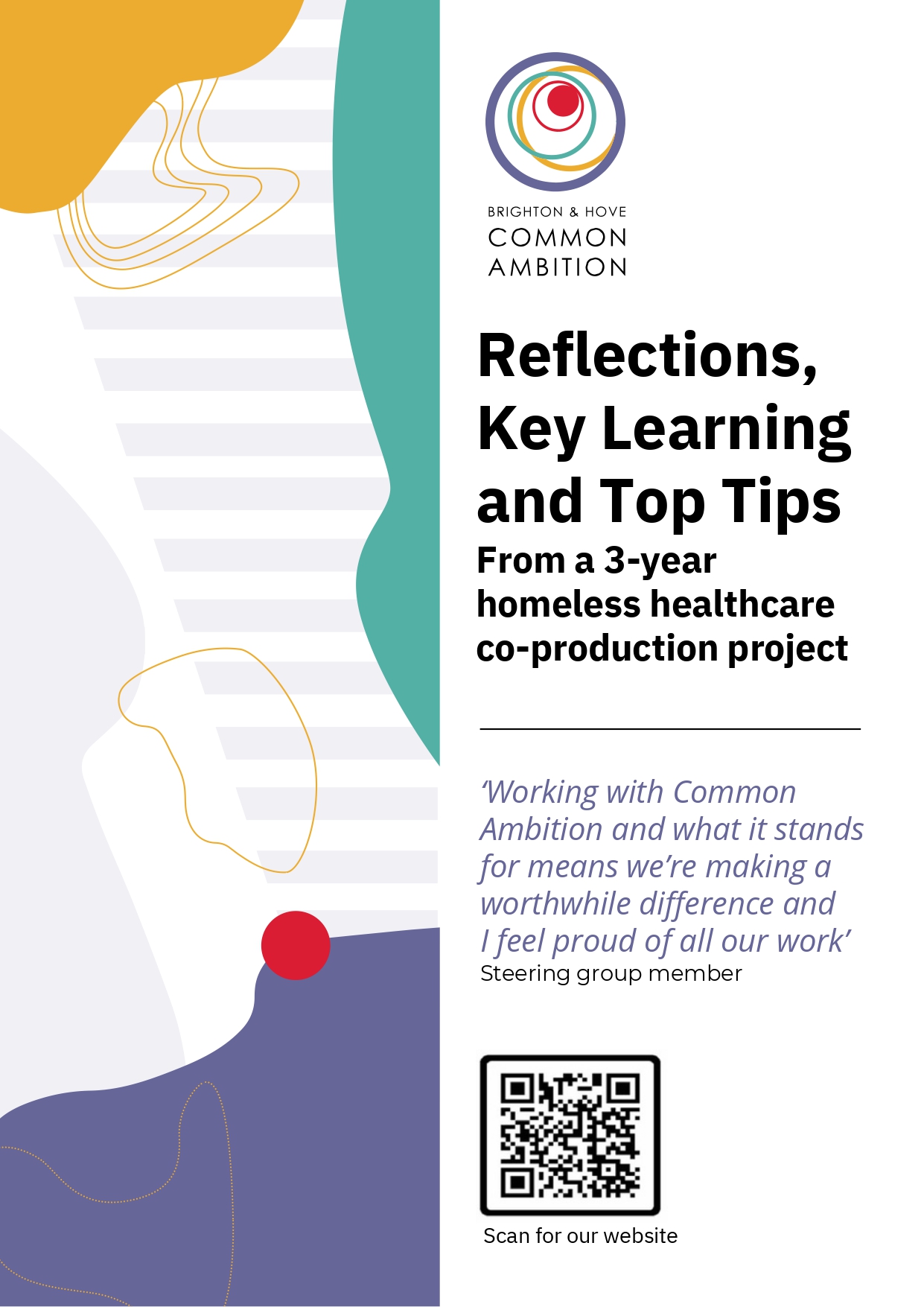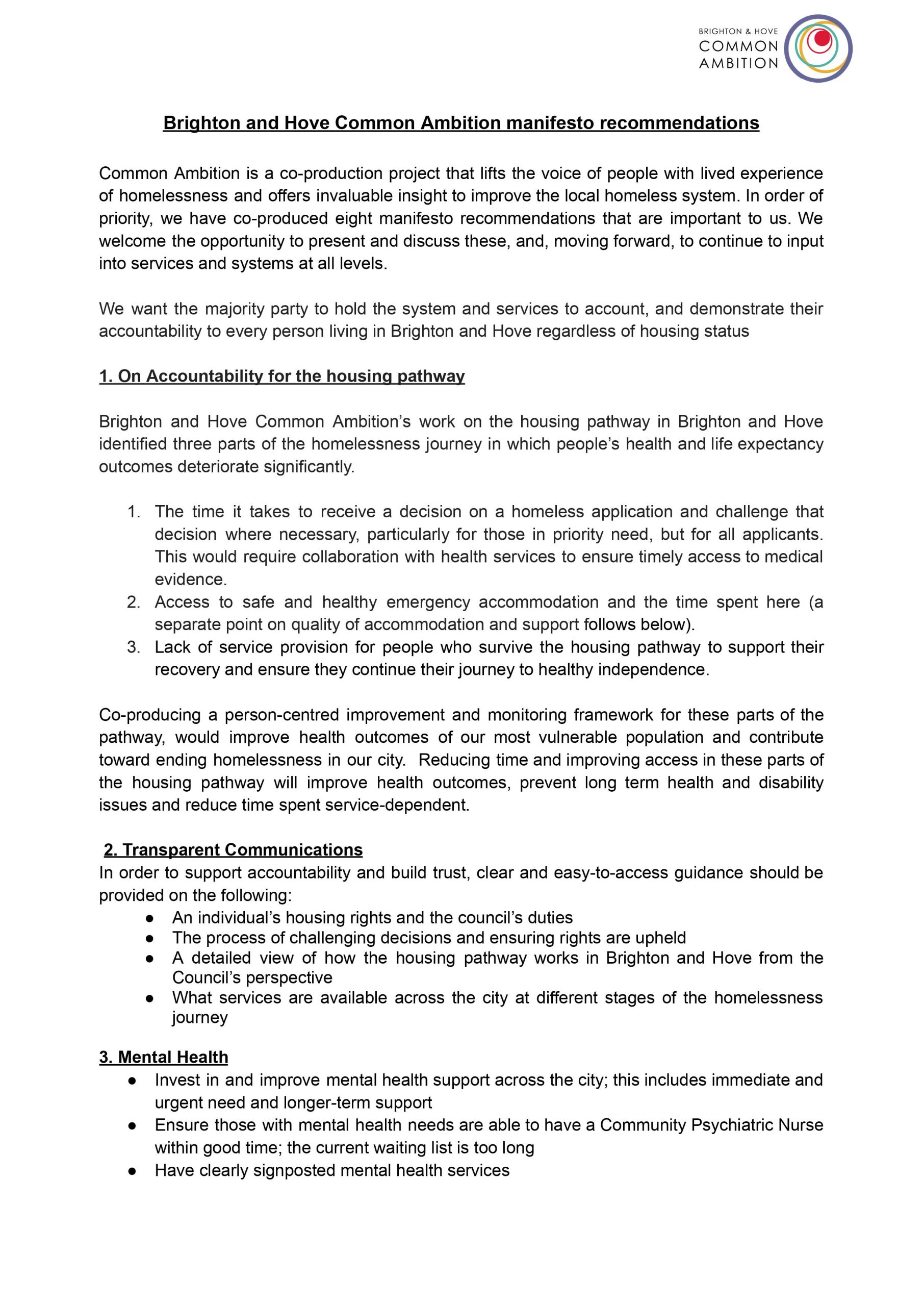BHCA has been working to lift lived experience voice, expose homeless healthcare system challenges and co-produce improvements, through this journey we have co-developed processes, tools, maps and prototypes.
These resources are intended to support people who are currently experiencing homelessness, those designing, managing and working within homelessness services, organisations and communities who would like to co-produce change.
Please do contact us with any questions or feedback or if you'd like to use our resources.
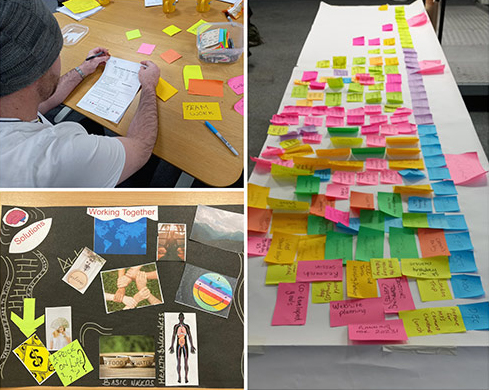
How We Work
Since our first steering group session in June 2021, we have gradually developed ways of working that are unique to the project and in line with our co-production and trauma-informed practices. These were created to ensure everyone feels safe and comfortable working as a group.
The following co-produced documents specify the practices we have developed for the group to work well and safely together. This has been an organic process that has grown out of conversations and reflections in the group.
Documents:
Toolboxes
This booklet describes group processes and resources co-created by the BHCA lived experience steering group after our first year working together. During this time we worked to build our steering group and review the local system.
We group these processes into four toolboxes:
- Bringing people with experience together
- Collecting and analysing experiences
- Mapping the system
- Identifying challenges
Group Agreement
The first co-produced piece of work we completed together was the group agreement, these are the ways in which we have all agreed to work together during sessions.
We advise all groups who are coming together to co-produce, co-create or co-design service and system change to co-develop a group agreement.
System Maps
To understand the system and identify areas for improvement, we spent a lot of time discussing and analysing experiences and feedback as well as listening to guest speakers talk about different parts of the homeless healthcare system.
To support this work we developed these three maps, which we hope will be useful in supporting those experiencing homelessness and those commissioning and working in the sector.
Documents:
Co-produced Guidance Documents
Documents:
Welcoming Visitors Guidance
As per our Goal Number 3, we “encourage collaboration & allyship” and welcome visitors to the group.
We have built ways of working together to feel confident and safe in the space. We ask that visitors help us to do this. This document sheds light on how we work together and how we would like others to work with us.
Co-production Workshop and Meeting Guidance
Raising lived experience voice and enabling effective co-production is key to systems change and service improvement.
BHCA has developed this guidance for services and commissioners, to enable safe, equal and effective discussions and collaborative workshops in co-production spaces. We urge you to use this guidance when bringing commissioners, organisations and people with lived experience together for co-production workshops.
Event Participant Wellbeing Guidance
In October 2023, we coproduced a guidance to ensure safety and wellbeing at the Brighton and Hove Homeless Health conference.
This is to highlight best practice when delivering an inclusive event (for example conferences) where people with lived experience and services and/or commissioners are coming together to learn
Using Case Studies Guidance
See the person not just the health problem. Is a co-produced guidance for collecting, creating and presenting case studies using a trauma-informed approach.
For the context of this guidance, when we say case studies we mean presentations or studies of someone’s personal experience, story or narrative. These are often used to show learning or service impact, or used as a teaching aid. We have attended many events where case studies have been presented. We have also discussed in detail how and when we should use case studies to support our work, particularly when designing training for medical students. We wanted to create this guidance to share our perspectives on their creation and use.
BHCA's Top Tips
We have worked together to develop our top tips for safe and effective co-production of service improvement and system change. We hope our posters will be useful for anyone on their co-production journey.
The areas of work included are:
- Recruitment
- Group work
- Trauma-informed working
- Co-production
- Service design
- Ending well
Lessons For Co-production
Working with Dr Emma Anderson, University of Brighton, we carried out a research project on co-production. These are some of the key lessons that came out of this.
Over the initial three years of work we have done, supported by the Health Foundation, we have co-developed our co-production practice. These are our key lessons. Further research in this area will be carried out by our academic partner.
Homeless Healthcare Hub
Homeless Healthcare Hub Specification
We feel that a solution, or part of the solution to the challenges we identified in April 2022 is a homeless healthcare hub. A safe space where people experiencing homelessness can come and access the services they need under one roof.
In Autumn 2023 we carried out a design sprint to gather our ideas and put them into a specification. This is an overview document, highlighting our key ideas.
Route to Roof
Route to Roof Prototype
From April 2022, from our list of identified challenges, we chose to work on ‘Making information about all services easier to find’.
From this, we co-designed a prototype ‘Route to Roof’; an easy to use online and paper directory of services supporting people experiencing homelessness in Brighton. This is still a work in progress.
Housing Pathway Map
Pathway Map
In September 2022, we started to map the Brighton and Hove Housing Pathway.
This is from the perspective of a single adult with recourse to public funds and is not demonstrative for all journeys, for example families or asylum seekers and refugees with no recourse to public funds.
Last updated 18 November 2022.
Co-produced Comic
The Comic
We co-produced this comic alongside Tom Roberts, a PhD student at the University of Brighton, over the summer of 2023. While the medium is light-hearted, the message is important: The voices of people with lived experience need to be heard.
This comic illustrates three of our key themes, barriers to accessing care and support, facing stigma and judgement and why co-production is key in addressing system and service improvement.
Evaluation
Work carried out by Brighton and Hove Common Ambition over the three years, where funding has been provided by The Health Foundation, will be evaluated by Dr Mary Darking (Academic and Evaluation Lead for the project)
The final evaluation will be published in April 2024. However there has been initial evaluation work carried out, you can find this below.
Initial Evaluation Executive Summary
In November 2023, Dr Mary Darking carried out an initial evaluation of Brighton and Hove Common Ambition. Here is the executive summary from this report
This summary gives an overview to the key points in the initial evaluation. The full report will be published in January 2024.
Initial Evaluation Presentation Slides
In November 2023, Dr Mary Darking presented her findings from an initial evaluation at a celebration event hosted by the BHCA Steering Group.
These slides show the barriers that this project has overcome, how it is different to other work in this field, how it has developed service design capabilities, it's system value and the logic of sustaining it.
Ending Well
Brighton and Hove Common Ambition has been funded as a three year project by The Health Foundation, we thank them for all of their support and guidance during this time.
Our project funding ends in March 2024. We are co-producing an ending that is first and foremost trauma-informed and safe, and we build a lasting legacy for our work.
Documents:
Ending Well Poster
Our first step in co-producing a good ending to the project was to ideate together, thinking about what we need to end well. This poster contains all of our needs.
Five key areas stood out to us:
- We want to make this a positive ending
- We want our personal journeys to continue
- We want to be part of our work continuing
- We want our legacy to live on after the project ends
- We want to celebrate our success
Local party political manifesto recommendations
Following a visit from local MPs Caroline Lucas and Lloyd Russell Moyle in winter 2022, we were encouraged to think about policy recommendations to share with the local parties.
